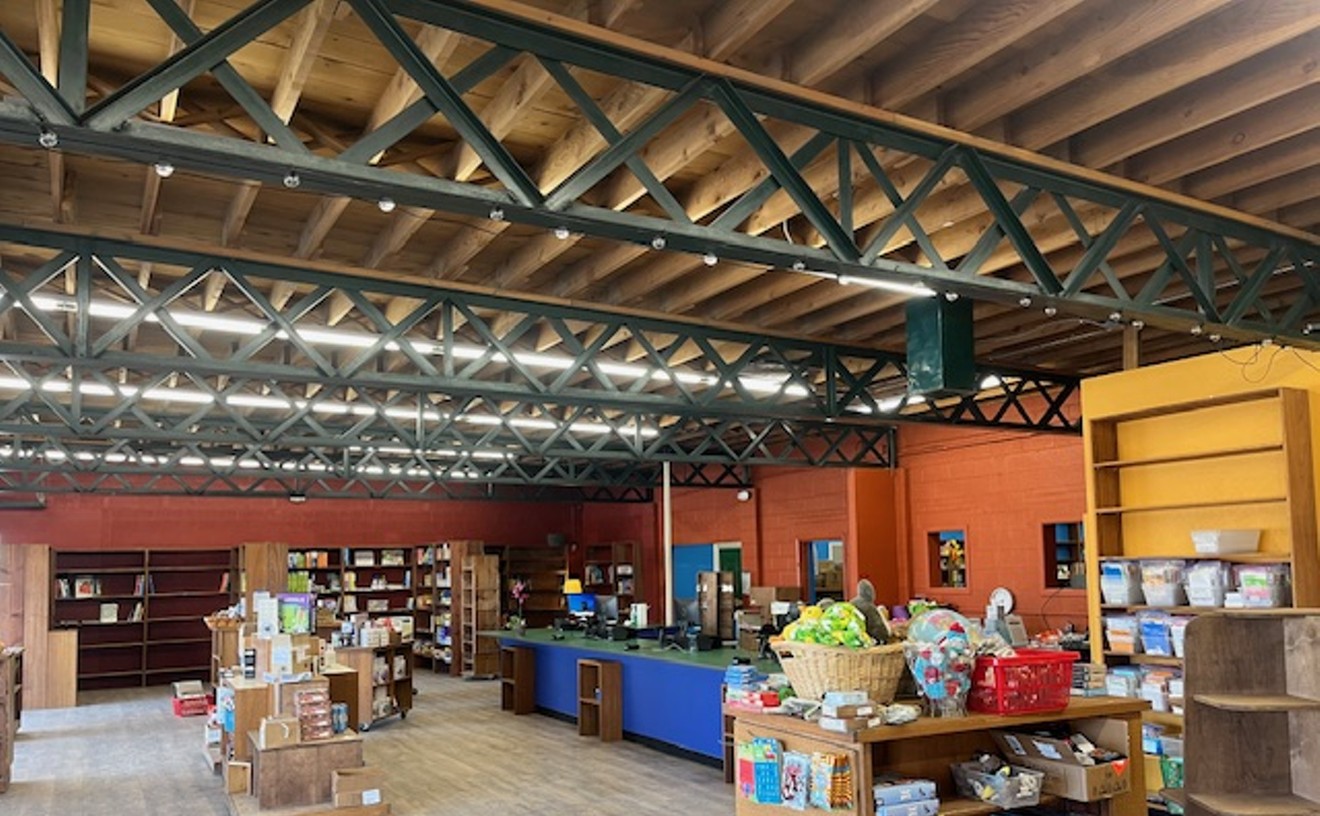This traveling showcase, organized by the Japan Foundation, a cultural-exchange group, features more than a hundred consumer products, many created since the 1990s. Only in Japan, where Eastern tradition is blended with technology, could individuals turn common household items into sculptural objets d'art. Who else would aspire to rethink blueprints for packs of gum, garbage receptacles, safety caps and even plastic erasers? Who else would make such mundane pieces look like futuristic apartment buildings, architectural aliens and unforeseen, cosmic plant life? As the foundation's catalogue notes, the items become funny and intimate creations that can be seen as "creative, mysterious creatures; safe and simply designed." These innovators "aren't afraid to take design to its extreme," says Cecily Cullen, the center's program coordinator.
In short, this stuff is the mundane reborn as the fantastical. And not surprisingly, these retooled wonders make everything in your own drawers look depressingly uncool.
Japanese Design Today highlights some of the more highly recognizable design pieces, such as Sony's famed AIBO dog (a mechanical mutt that plays music and meddles), Issey Miyake's cut-it-yourself A-POC clothing and Isamu Noguchi's luminary Akari lamps. But I'm more fascinated by the smaller artifacts, where nothing is too pedestrian to warrant meticulous attention.
When was the last time a safety cap was described as "hip"? Or a Kikkoman soy sauce dispenser notable for undulating curves and a soothing aesthetic? In these common items, beauty becomes accessible, with every article transformed into a work of art and every action into a social statement. This collective social awareness is evidenced in the many pieces made of recycled materials or produced in an eco-friendly fashion. But however sustainable, forward-thinking and gentle to the earth these consumer goods may be, they are still consumables for the ever-fallible human. Perhaps the most vivid example of this is the Prossimo Portable Ashtray, "for smokers who are concerned about the environment."
Still, for me the most astounding discovery was the transformation of plastic baby furniture. Never did I think I'd see infant-oriented products that I'd voluntarily display in my dining room. These pieces are whimsical, colorful, contemporary and clever -- four adjectives I rarely use when shopping at Babies-R-Us.
The opening should be as lively as the show itself, attended by delegates from Japan's consulate general, and stocked with delights from Vesta Dipping Grill. This is a rare stop in this country for Japanese Design Today, so get up from that Jiyu Gakun Myonichikan chair, turn down the Nakamichi Soundspace 9 Stereo, raise a MORDOE porcelain cup ("designed to fit snugly into the saucer for stability") and say "arigato."










